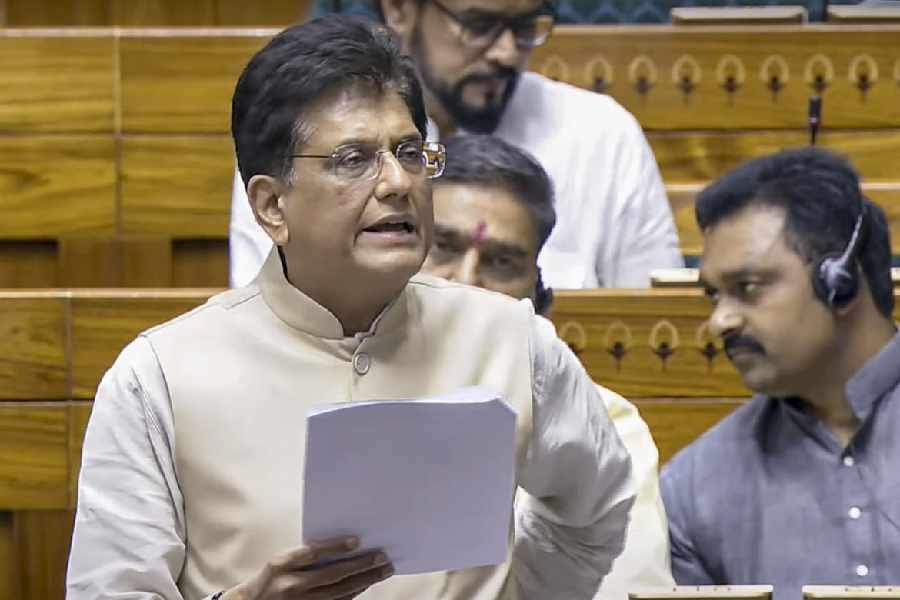Confident approach
Sir — What is the line that separates confidence from over-confidence? A recent incident may bear proof. A young boy who appeared on Kaun Banega Crorepati faced widespread criticism for being ‘overconfident’. However, one wonders whether the boy faced flak only because he lost. Would people not have applauded him for his confident approach if he had won because they associate the trait with success? What is heartening is that youngsters, especially from Gen-Alpha, are unafraid to be themselves irrespective of how society judges their behaviour. This may be the true meaning of confidence.
Soureesh Dutt,
Calcutta
Unjust stance
Sir — The statement made by the chief minister of West Bengal, Mamata Banerjee, after the gang rape at the Durgapur Medical College — she said that girls should not be allowed to leave the campus at night — reeks of patriarchy (“CM draws line for campus girls”, Oct 13). Asking women not to step out at night reduces them into second-class citizens. This is a failure of governance. The excuse that the police cannot guard every home is an evasion of responsibility.
According to the National Crimes Records Bureau, West Bengal has a higher rate of crime against women than the national average. What is needed is police reform, the establishment of fast-track courts, gender-sensitivity training and instilling fear in the minds of criminals.
R.K. Jain,
Barwani, Madhya Pradesh
Sir — Mamata Banerjee’s advice to women that they should not step out late is unacceptable. Instead of manning law and order, she is placing the responsibility of staying safe on women. The chief minster should hold the police accountable for their failures. Banerjee’s comment has damaged her reputation.
Anju Bansal,
Calcutta
Sir — The advice that women stay indoors to be safe is illogical. Should people stop stepping out because accidents happen on the roads? It is worse that the comment came from a woman chief minister. After the rape and murder of a doctor at the R.G. Kar Medical College and Hospital, the state had ordered government hospitals not to employ female doctors in night shifts. That order, too, was criticised.
Jang Bahadur Singh,
Jamshedpur
Queered pitch
Sir — Allowing foreign universities to set up campuses in India is a welcome step (“Red carpet”, Oct 15). However, the University Grants Commission must reflect on its rules first. Owing to issues like the lack of reservation and exorbitant fee structure, many bright and deserving students from marginalised backgrounds will be excluded. There is also the question of sustainability. If these universities close their local centres, the future of enrolled students will be uncertain. Moreover, how will the UGC regulate the curriculum, ensure parity with parent institutions, and guarantee esteemed faculty? Answers to these questions remain unclear.
Sourav Ash,
Calcutta
Sir — Inviting foreign universities to India offers significant benefits, including improved academic standards and benefits to students by providing them access to international degrees at lower costs. The impacts could include curbing ‘brain drain’ by retaining talent within India, fostering research and innovation, and potentially attracting foreign students, thus promoting cultural exchange and reducing foreign exchange outflow. This will encourage joint research centres and improved research output. However, challenges include potentially high fees compared to domestic institutions and resultant limited enrolment. This would also mean that Indian universities will need to adapt their curriculum to remain competitive.
D.P. Bhattacharya,
Calcutta










